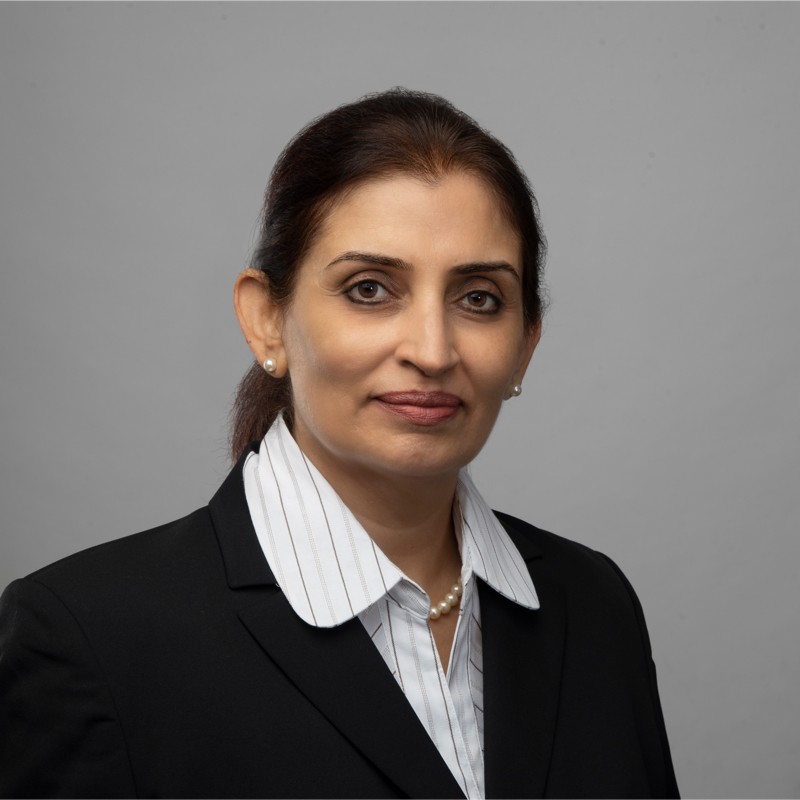


Sujata Saunik has made history by becoming the first woman to hold the prestigious post of Chief Secretary in the state of Maharashtra, India. Saunik, an experienced Indian Administrative Service officer, brings with her a wealth of knowledge and experience in public policy and governance gained over three decades of service. Even with a family lineage of bureaucrats, Saunik's merits and honours from Punjab University set her apart as a trailblazing leader in a male-dominated field. She has also served on international missions for the United Nations, solidifying her reputation as a seasoned and capable administrator.
Sujata Saunik: Maharashtra's First Woman Chief Secretary
Background:
Sujata Saunik, an Indian Administrative Service (IAS) officer, has created history by becoming the first woman Chief Secretary of Maharashtra. She brings a distinguished career spanning over three decades to this prestigious post.
Early Life and Education:
Born into a family of bureaucrats, Saunik holds a Master's degree in Economics from Punjab University. Her academic achievements and personal merits set her apart in a competitive field dominated by men.
IAS Career:
Saunik joined the IAS in 1987 and held various key positions in the Maharashtra government, including Commissioner of Mumbai and Principal Secretary of Finance. She also served on national and international missions, including the United Nations Development Programme and the World Bank.
Appointment as Chief Secretary:
In August 2022, Saunik was appointed as the Chief Secretary of Maharashtra, making her the first woman to hold this position. Her appointment was widely hailed as a significant milestone for gender equality in governance.
Top 5 FAQs and Answers:
1. Who is Sujata Saunik?
Sujata Saunik is an experienced IAS officer who has become the first woman Chief Secretary of Maharashtra.
2. What is the significance of her appointment?
Her appointment breaks the glass ceiling and sets an example for women in public service, particularly in male-dominated fields.
3. What are her qualifications and experience?
Saunik holds a Master's degree in Economics and has over three decades of experience in public policy and governance. She has served on international missions and held key positions in the Maharashtra government.
4. What are her responsibilities as Chief Secretary?
As Chief Secretary, Saunik is responsible for advising the Chief Minister and overseeing the administration of Maharashtra. She is the highest-ranking civil servant in the state government.
5. What are the challenges she faces as Chief Secretary?
As a woman leader in a male-dominated field, Saunik may face challenges related to gender stereotypes and unconscious biases. However, her experience and qualifications make her well-equipped to overcome these obstacles.
Conclusion:
Sujata Saunik's appointment as Chief Secretary of Maharashtra is a testament to her abilities, hard work, and the growing recognition of women's leadership in public service. Her journey serves as an inspiration to aspiring women leaders and a reminder that breaking barriers is indeed possible.

Government officials in the UK are facing backlash from citizens as Storm Bram brings heavy rain and winds, leading to flood warnings and potential risks to life. Good Morning Britain presenters Richard Madeley and Susanna Reid raised concerns about the lack of warning to those living in affected areas, while viewers expressed frustration over inconsistent warning systems. With severe weather conditions expected to continue throughout the country, citizens are calling for better communication and preparation from their government.

A shocking conspiracy was uncovered by the Bihar Police when they arrested an individual from Bhojpur for allegedly issuing death threats to MP Pappu Yadav. The whole scheme was concocted by his close associates to garner enhanced security for Yadav. The arrested man, Ram Babu, has confessed to making a threatening video at the behest of the MP's associates, who had promised him a position in their party. Police are still investigating the instigator of this plot and are also looking into other aspects of the case.

Congress-led UDF emerged as the leading force in the Kerala local body elections, securing a majority in 505 out of 941 Grama Panchayats. Meanwhile, the BJP-led NDA made significant gains, winning the Thiruvananthapuram Corporation for the first time and retaining key municipalities. Union Home Minister Amit Shah credited the victories to PM Narendra Modi's leadership and vision for "Vikasita Keralam".

In a significant victory for the Aam Aadmi Party (AAP), three women candidates secured seats in the Kerala local body elections. Former Mayor and MCD AAP Councillor Dr. Shelly Oberoi congratulated the winners, praising their success as a strong example of women's empowerment. Meanwhile, Congress president Mallikarjun Kharge expressed his gratitude to the people of Kerala for giving a decisive verdict in favor of the United Democratic Front (UDF), while Prime Minister Narendra Modi acknowledged and praised the efforts of BJP workers in the state. This outcome reflects the increasing support for female leaders and potentially hints at a greater shift towards progressive politics in the state.

As the counting for the local body elections in Kerala began, the Congress-led UDF is in the lead in most of the city and town local bodies. This two-phase election, held on December 9 and 11, has seen a high voter turnout of over 70%. The results of this election will have a significant impact on the political landscape ahead of the 2026 Assembly elections in Kerala, with local body results often reflecting voter mood. Congress president Mallikarjun Kharge has expressed confidence in the UDF alliance's chances in the upcoming Assembly polls.

R Sreelekha, the former DGP and BJP's mayoral candidate in Thiruvananthapuram Corporation, secured a victory in the Sasthamangalam ward and pledges to deliver a corruption-free administration if given the chance to serve the public. Other notable victories in the corporation elections include former district president VV Rajesh and UDF mayoral candidate KS Sabarinathan. However, some high-profile defeats were seen, including actor Poojapura Radhakrishnan and Congress leader Johnson Joseph. Independent candidate Pattoor Radhakrishnan and Congress candidate Mary Pushpam also emerged victoriously in their respective wards.

According to sources, the Special Intensive Revision (SIR) exercise in West Bengal has identified a total of 58,80,202 voters who may be excluded from the draft voter list. This includes people who have passed away, transferred, missing, and identified as 'fake' by the Election Commission. These numbers are subject to change in the final list, which is set to be published on February 14, 2022. The commission has divided voters into three categories - own mapping, progeny mapping, and non-mapping - depending on their presence in the 2002 voter list. Those not falling into any of these categories will be called for a hearing by the EC.

In a significant shift in voter sentiment, the Congress-led United Democratic Front (UDF) is set for a decisive win in the Kerala local body elections, dealing a major setback to the ruling CPM-led Left Democratic Front (LDF) ahead of the 2026 Assembly elections. The UDF has consolidated its gains across urban local bodies, while the LDF's last-minute welfare push failed to curb anti-incumbency. The NDA also made significant gains, underlining its expanding presence in urban Kerala.

In a major upset, the BJP-led NDA has won the Thiruvananthapuram Municipal Corporation, ending the CPI(M)-led LDF's 45-year reign. The victory, with the NDA winning 50 out of 101 seats, is a boost for BJP's aspirations in Kerala's upcoming Assembly elections. The party's strong focus on development and Hindutva in Thiruvananthapuram, under the leadership of state unit president Rajeev Chandrasekhar, proved successful despite challenges faced during the campaigning. This victory has put the BJP in a strong position for the 2021 Assembly elections.

The Bharatiya Janata Party-led National Democratic Alliance (NDA) has taken a huge lead in Thiruvananthapuram Municipal Corporation, giving a setback to the ruling Left Democratic Front (LDF). Initial trends show the NDA leading in 25 wards, while the LDF is ahead in 15 wards and the UDF in 10 wards. This is a major blow to the LDF ahead of the upcoming assembly elections in Kerala, with a record voter turnout of 73.69%. The State Election Commission has also commended the peaceful conduct of the elections.